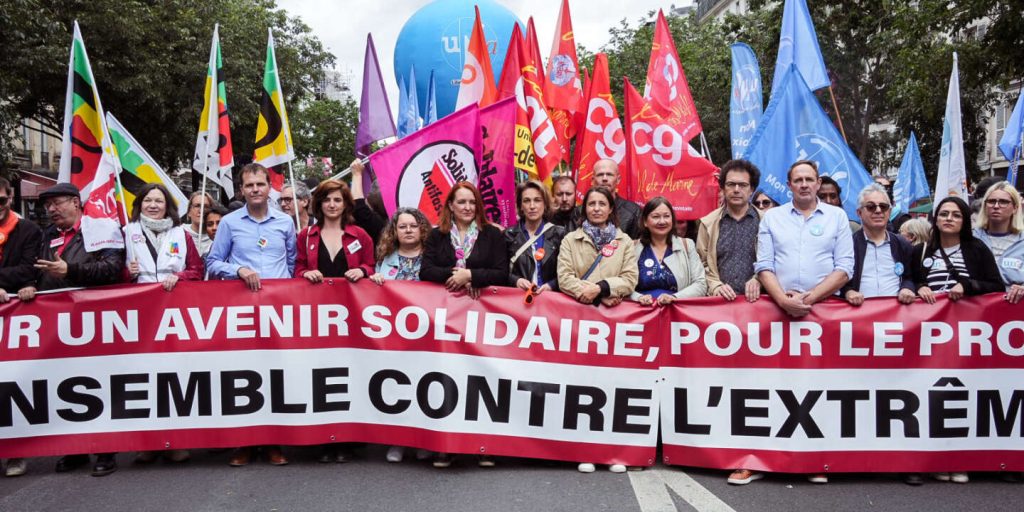Thousands of people across France have taken to the streets to protest against the rise of the far-right. Demonstrations have already started in cities such as Bayonne, Toulon, Nancy, and Valenciennes. Protesters in Nancy are carrying banners that read “The Republic in flames” and “The far-right is a deadly danger”, with over a thousand people marching, including young people, the elderly, and families. In Meurthe-et-Moselle, the CGT estimates that 5,000 people are participating in the protest.
In Clermont-Ferrand, between 2,600 (according to the authorities) and 5,000 people (according to unions) have taken part in the demonstration. In Le Puy-en-Velay, there were 580 participants according to the authorities. In Reims, the authorities counted over 500 protesters, while the CGT estimated between 700 and 800. The protest in Bayonne, where young people were prominently present, gathered 3,700 individuals according to the organizers, in a city that previously saw more than 10,000 people protesting against pension reforms.
Sophie Binet, the general secretary of the CGT, stated on BFM-TV that through their popular uprising, they would prevent any organized catastrophe. Marylise Léon, the head of the CFDT, also emphasized the historical significance of the moment and called for mobilization against the far-right’s detrimental agenda for workers. In Paris, a demonstration is planned to start at 2 pm and follow the route of République-Bastille-Nation. A protest is also scheduled in Lyon on Sunday, with police sources expecting between 300,000 to 350,000 participants nationwide, including 50,000 to 100,000 in the capital. A significant deployment of 21,000 police officers and gendarmes is planned for the protests.
The mobilization against the far-right is a response to the increasing popularity of the Rassemblement national party. The protesters are standing against what they perceive as a dangerous ideology that threatens the values of the Republic. The participation of a diverse range of people, including youth, elderly individuals, and families, underscores the widespread concern over the impact of far-right policies on society. The trade unions are playing a prominent role in organizing and leading the demonstrations, emphasizing the importance of worker solidarity in resisting extremism.
The large turnout in cities across France reflects a collective determination to push back against the far-right and protect democratic principles. The messages on banners and the speeches by union leaders highlight the sense of urgency and the need for a united front against the far-right agenda. The demonstrations are not only about opposing specific policies but also about defending the fundamental rights and freedoms that are seen to be at risk. The significant police presence indicates the potential for tensions and the authorities’ recognition of the scale of the protests.
The protests in France against the far-right are part of a broader trend in Europe where populist and nationalist movements have been gaining ground. The response from citizens and civil society organizations is a rejection of the divisive rhetoric and policies that threaten the social fabric. The coming together of people from different backgrounds and generations in these protests signals a shared commitment to safeguarding democracy and inclusivity. As the demonstrations continue, the challenge will be to sustain the momentum and channel the collective energy towards constructive political change.


